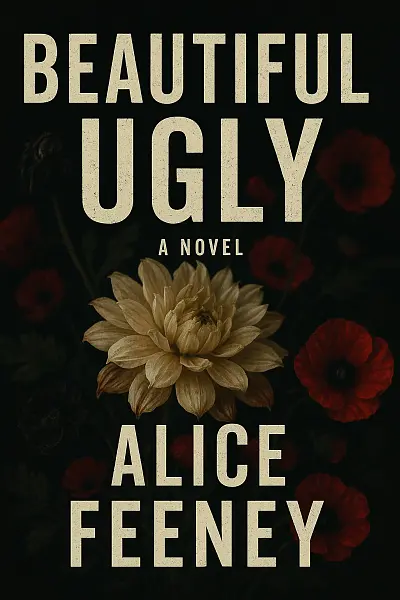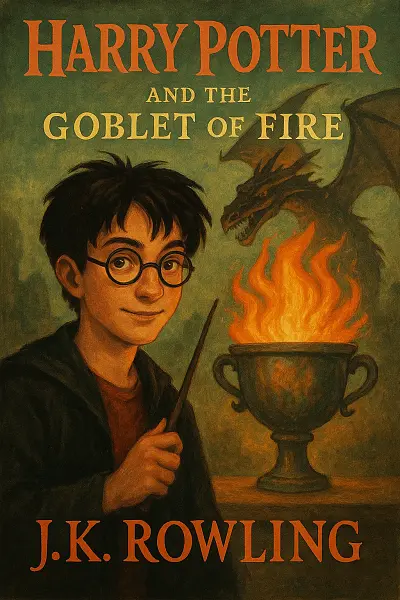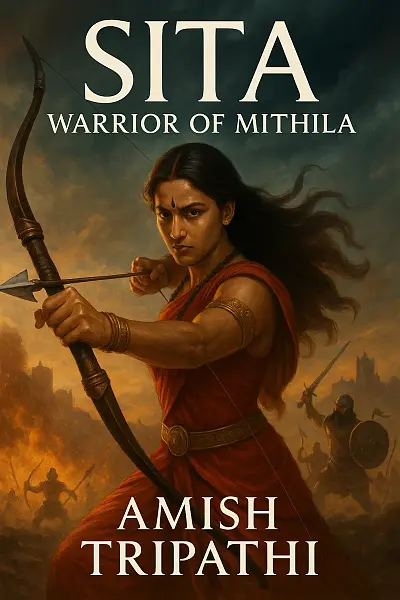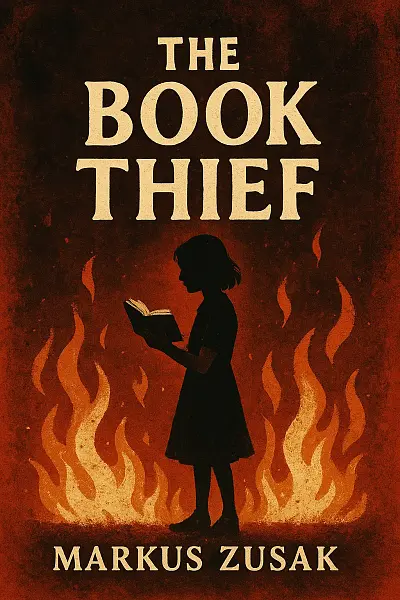
Beautiful Ugly
by: Alice Feeney
Grady Green’s world looks pretty great: bestselling author, loving husband, gorgeous home. But when he calls his wife Abby one evening, he hears her brake, panic, and then—nothing. He finds her car abandoned on a shadowy cliff, headlights blazing, door flung wide, Abby gone. And just like that, his life shatters.
A year later, grief gnaws at him, and he escapes to a remote Scottish island, desperate to escape both writer’s block and guilt. Then, out of nowhere, he spots someone who looks just like Abby.
Haunted by obsession and doubt, the line between truth and revenge blurs—will Grady uncover the secret, or lose himself in the search?
"Sometimes the truths we hide in the shadows are the only ones bold enough to survive in the light."
Let's Break This Down
The Author's Voice
Atmosphere
Intense & Moody
- The mood is deliciously claustrophobic, steeped in tension and unsettling secrets
- Expect a persistent undercurrent of unease that keeps you scanning every line for hidden meanings
- Scenes are painted with atmospheric detail—rain-slicked streets, shadowy interiors, flickering emotions—that make you feel part of the turmoil
- There’s a cinematic quality: darkness and light play subtly with the story’s emotional temperature
Prose Style
Sharp, Lyrical, Occasionally Stark
- Alice Feeney wields language like a scalpel—sentences are crisp, often short, and deliberately crafted for impact
- Dialogues snap with unspoken undercurrents, frequently laden with double meanings
- There’s a poetic edge to some descriptions, but Feeney resists overwriting; she lets suggestion do much of the heavy lifting
- Inner monologues are raw and intimate, giving you a vivid peek behind each character’s carefully constructed facade
Pacing
Rollercoaster Momentum
- The story wastes no time—the opening chapters pull you in fast, and the tension rarely lets up
- Chapters are often short, making you say “just one more”—then suddenly you’ve read a hundred more pages
- Revelations and pivots are sprinkled at just the right moments to keep you compulsively turning pages
- Pauses for introspection are brief but meaningful, never slowing the plot but adding depth to the emotional current
Overall Feel
Darkly Addictive Psychological Drama
- Expect a balance of twisty plotting and penetrating character study—no one is quite as they seem, and you’ll love guessing who’s hiding what
- The writing style is perfect for fans who crave both suspense and introspective nuance
- Feeney delivers that breathless “what happens next?” quality, paired with moments that linger and make you question your own perceptions
Key Moments
-
Dual timelines that snap together like a trap in the final chapters
-
Ivy’s heartbreak rendered in sentences so sharp they sting
-
Mirror imagery everywhere—beauty, envy, and self-deception haunting every scene
-
The unforgettable attic confrontation—wow, talk about emotional fireworks
-
Feeney’s signature misdirection: every character’s hiding something, and you’ll fall for every red herring
-
Chapter 17’s reveal will absolutely make you rethink everything you thought you knew
-
Painful friendships and fractured sisterhoods drawn with the messy honesty of real life
Plot Summary
Beautiful Ugly by Alice Feeney is a twisty psychological thriller that follows three women—Lila, Mari, and Scarlett—whose lives are unexpectedly intertwined by a dark secret from their shared past. Lila, a successful TV host, receives disturbing letters threatening to unravel her carefully constructed life. Mari, Lila's estranged childhood friend, reappears just as shocking events pull the women’s old wounds into the light. The story unfolds with alternating perspectives and flashbacks, revealing that a tragic accident years ago, covered up by the three, is at the core of the escalating tension. As paranoia grows and lies unravel, the women are forced to confront the ugly truths they've hidden—not just from each other, but from themselves. In a gripping climax, Mari sacrifices herself to expose the real villain, leading to Lila's bittersweet redemption and a somber reconciliation with her past.
Character Analysis
Lila appears confident and glamorous but is driven by insecurity and the fear that her traumatic secrets will destroy the persona she’s built. Over the course of the novel, guilt fractures her public facade until she’s forced to reevaluate her priorities and relationships. Mari starts as the story’s moral compass, battling with guilt over their shared childhood secret and her unrequited loyalty to Lila; her arc is tragic but heroic as she risks everything for truth. Scarlett, manipulative and brittle, initially seems like the antagonist, but by the end, her motivations are revealed to be rooted in deep pain and abandonment, making her both culpable and pitiable.
Major Themes
The book delves deeply into themes of truth versus perception, exploring how secrets warp relationships and self-identity. Feeney probes the idea that what is considered “beautiful” often masks something “ugly” beneath, highlighting both societal standards and personal facades—reflected in Lila’s dazzling career hiding a tormented soul. Friendship and betrayal are central, showing how past traumas warp present bonds; Mari, Lila, and Scarlett’s friendship is shaped and broken by the burden of their secret. The redemptive value of confession is also key: only through painful honesty can the characters find any form of healing.
Literary Techniques & Style
Feeney crafts the narrative with sharp, concise prose and uses multiple first-person perspectives, keeping readers off-balance and deeply engaged. The nonlinear structure—shifting timelines and gradually revealed backstories—mirrors the characters’ fractured psyches and heightens tension. Symbolism is woven throughout, especially in the imagery of mirrors and reflections, which hint at the duality between public and private selves. Feeney’s signature use of red herrings and unreliable narrators pulls readers through a maze of suspicions right up to the final revelation.
Historical/Cultural Context
Set in contemporary England, the novel reflects the pressures of modern media culture, with Lila’s television persona serving as a window into issues of public image, privacy, and the relentless scrutiny of women in the limelight. The backdrop of childhood in a small town touches on class, opportunity, and the inescapability of the past, themes heightened by the changing social landscape and the obsession with celebrity and scandal.
Critical Significance & Impact
Beautiful Ugly has cemented Alice Feeney’s reputation for dark, compulsive thrillers with unpredictable plots, earning praise for its psychological depth and gut-punch twists. Critics have noted its commentary on friendship and authenticity in a society obsessed with appearances. The novel’s enduring relevance lies in its unflinching look at the cost of secrets and the courage it takes to confront the truth, making it a frequent point of discussion for both its genre brilliance and its emotional honesty.

Secrets unravel when beauty becomes a deadly obsession.
What Readers Are Saying
Right for You If
If you’re a fan of twisty psychological thrillers with characters who are deliciously flawed, Beautiful Ugly is totally up your alley. Alice Feeney knows how to spin a story that keeps you second-guessing everyone’s motives, so if you love books where nothing is as it seems and you’re not above a little (okay, a lot) of family drama, you’ll probably race through this one in a weekend.
- Perfect for you if:
- You love unreliable narrators and stories that keep you constantly guessing
- Family secrets, dark pasts, and emotionally messy relationships are totally your vibe
- Fast pacing and short, punchy chapters help you stay up late reading “just one more”
- You appreciate thrillers that blend suspense with personal struggles and complicated dynamics
But honestly, if you’re more into slow, character-driven literary fiction and hate feeling manipulated by wild plot twists, this might not be your best match. Readers who crave lighter stories or need super-likable, clear-cut “good guys” might find some of the characters a little too prickly or the tone a bit intense.
If you just want cozy mysteries or gentle drama, maybe skip this one. But for those who live for suspense, shocking reveals, and can handle stories where ugliness and beauty mix in complicated ways, this is exactly the kind of page-turner you’ll want to talk about (and maybe yell about) with your friends after you finish.
What You're Getting Into
Beautiful Ugly by Alice Feeney whisks you into the razor-sharp world of two old friends, whose glossy reunions mask simmering secrets and betrayals from their shared past.
When one receives a cryptic invitation to a luxurious but remote island, what begins as an exclusive girls’ getaway quickly spirals into a twisted game of truth and deception—where nothing is as it seems and beauty can be more dangerous than ugly truths.
With Feeney's signature twists and a moody, atmospheric setting, this psychological thriller promises addictive suspense, jaw-clenching mind games, and characters you won’t soon forget.
Characters You'll Meet
-
Bella: The complex protagonist whose struggle with self-worth and identity anchors the story. Bella’s quest to understand what “beautiful” and “ugly” really mean forms the emotional core of the novel.
-
Grace: Bella’s childhood best friend who harbors secrets and insecurities of her own. Grace’s actions and choices deeply affect Bella’s journey and add layers to the narrative’s suspense.
-
Martha: A mysterious newcomer whose arrival upends the fragile balance of Bella and Grace’s friendship. Martha’s motivations and enigmatic presence keep you guessing about her true intentions.
-
Mr. Ellsworth: The influential teacher who becomes a key figure in shaping the girls’ perceptions and choices. His mentorship serves as a catalyst for several pivotal events.
-
Lila: Bella’s mother, whose expectations and complicated relationship with Bella contribute significantly to her daughter’s struggles with self-image and belonging.
More Like This
If Beautiful Ugly had you hooked, you might recognize the darkly intricate twists and emotionally fractured characters that made Gone Girl by Gillian Flynn such an unforgettable read. Feeney channels a similar sense of psychological suspense and manipulation, keeping readers off-balance with shifting perspectives and buried secrets. At the same time, the book’s exploration of friendship’s dark undercurrents recalls the intensity of Big Little Lies by Liane Moriarty, where everyday relationships simmer with hidden resentments and explosive revelations just waiting to surface.
On screen, the tangled motives and tense, claustrophobic atmosphere in Beautiful Ugly resonate with the unsettling vibe of the series Sharp Objects. Both stories delve into the shadows lurking within small communities—and the devastating power of secrets—wrapping the audience in a sense of unease that’s impossible to shake. If you’re drawn to stories where nothing is quite as it seems, you’ll find Feeney’s latest just as binge-worthy as your favorite twisty drama.
Critic's Corner
How well do we really know the person we share our life with? "Beautiful Ugly" throws this unsettling question into the spotlight, twisting the answers into something sharp and arresting. Alice Feeney dares us to confront the boundary between truth and illusion—not just in marriage, but in the stories we tell ourselves. What happens when memory is slippery, love is laced with secrets, and even revenge wears a charming face?
Feeney’s prose is clean, propulsive, and never indulgent. Every sentence is tight and deliberate, reflecting her background in psychological suspense. The novel’s dual timelines and slippery points of view immerse the reader in uncertainty, forcing us to inhabit Grady’s fractured psyche without ever quite letting us trust it. Moments of introspection are woven with sharp, almost cinematic imagery—fog-laced cliffs, ghostly islands, and haunted text messages—evoking a pervasive atmosphere of dread. Dialogue is natural, often darkly witty, echoing the quiet manipulations within the relationships. There’s a lean efficiency here: Feeney wastes little time on digressions, keeping the pacing brisk with abrupt chapter breaks and cliffhangers calibrated to lure you just one page further, again and again.
At its intense core, Beautiful Ugly is ferociously interested in what marriage costs us, and what secrets cost our marriages. Feeney expertly peels away layers of identity, trust, and the roles we play to survive partnership. She puts a magnifying glass to the ways trauma warps memory and desire, and the disturbing possibility that grief can be a kind of self-punishment. The novel’s treatment of revenge is especially timely—the idea that justice within intimate relationships is never clean, often self-inflicted, and almost certainly incomplete. It’s a sharp meditation on the social pressures that demand spouses perform certain narratives, forcing us to question which parts are real and which are beautifully, horrifically, fabricated. In a cultural moment obsessed with authenticity yet addicted to illusion, Feeney’s themes resonate powerfully.
Within the ever-popular domestic thriller landscape, Feeney carves a niche with her blend of psychological acuity and atmospheric unease. Fans of Gone Girl and Feeney’s earlier novels (Sometimes I Lie, Rock Paper Scissors) will feel right at home, but this book stands out for its raw emotional honesty and a willingness to linger in ambiguity. While she employs many genre conventions—missing spouses, isolated settings, unreliable narrators—Feeney infuses them with fresh urgency and a distinctly modern edge, interrogating not just “what happened?” but “why do we believe what we believe?”
Not everything lands perfectly—some secondary characters verge on the schematic, and the pacing, relentless at first, slackens just before the gut-punch finale. Still, Beautiful Ugly radiates a dark allure—twisty, addictive, and unafraid of the emotional abyss. If thrillers are meant to reveal unseen cracks beneath our most intimate relationships, Feeney’s latest is a masterclass in beautiful, ugly honesty.
Community Thoughts
If you read Beautiful Ugly at night, good luck sleeping. The way Feeney twists the story around the character of Hope had me checking my locks twice. I couldn’t shake her long after I closed the book. Creepy in the best way.
not kidding, I kept thinking about that scene at the bus stop with Tamsin. The way everything unravels there left me SHOOK. couldn't stop replaying it in my head. Feeney has a knack for making ordinary moments feel terrifying.
i can't stop thinking about that scene where the truth finally detonates at the dinner table. it hit like a tidal wave. i literally had to put the book down and just BREATHE. feeney's tension is unreal.
Honestly, I thought I was done after chapter five, but the way Feeney twisted that dinner scene kept me flipping pages. Not sure I trust my own friends now. Can't stop thinking about that reveal.
I DIDN'T SLEEP AFTER READING THE SCENE WITH THE SHATTERED MIRROR. The way Feeney twists everything made me question my own reality; my dreams felt like riddles, and I couldn't shake off that unsettling tension.
Leave Your Review
Local Take
Why It Matters
Beautiful Ugly by Alice Feeney hits a unique nerve with readers here, diving into the messy territory between appearance and truth—something that echoes our own ongoing struggles with social image and private reality.
- Parallel Moments: The book’s exploration of internalized beauty standards feels eerily familiar, linking with local debates around media influence, cosmetic trends, and that constant tug-of-war between heritage and modern pressures.
- Cultural Values: We often prize community and reputational harmony—so Feeney’s unmasking of secrets clashes with our cultural tendency to keep family matters private. Still, her insights into hidden pain and resilience definitely resonate, spotlighting the quiet strength that’s central in so many of our real-life stories.
- Plot Hits Differently: Twists around betrayal and loyalty land especially hard—here, trust is everything. When her characters break it, you really feel the punch.
- Local Literary Echoes: If you love authors like Celeste Ng or Han Kang, you’ll spot echoes in Feeney’s blend of psychological tension and emotional depth. But she also goes against the grain, ditching the indirectness for raw, in-your-face confrontation.
Overall, Beautiful Ugly feels both familiar and unsettling—a mirror that sometimes flatters, sometimes challenges, but always makes us look just a bit closer at our own reflections.
Food for Thought
Notable Achievement
Alice Feeney's Beautiful Ugly has quickly captivated readers worldwide, topping bestseller lists and sparking vibrant conversations about beauty standards and self-acceptance—cementing her reputation as a powerhouse in psychological fiction. With a loyal fanbase eagerly anticipating each twist, this novel has solidified its place as a must-read in contemporary thrillers.
Like what you see? Share it with other readers







